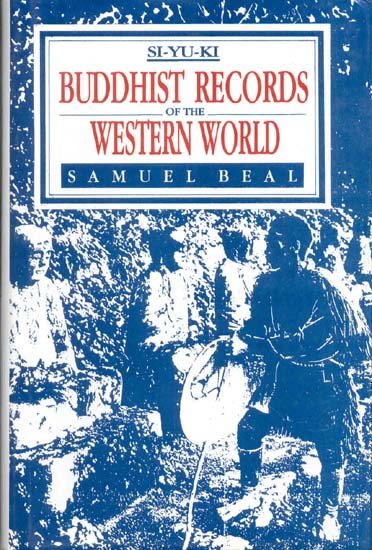Buddhist records of the Western world (Xuanzang)
by Samuel Beal | 1884 | 224,928 words | ISBN-10: 8120811070
This is the English translation of the travel records of Xuanzang (or, Hiuen Tsiang): a Chinese Buddhist monk who traveled to India during the seventh century. This book recounts his documents his visit to India and neighboring countries, and reflects the condition of those countries during his time, including temples, culture, traditions and fest...
Chapter 13 - Manners, Administration of Law and Ordeals of India
With respect to the ordinary people, although they are naturally light-minded, yet they are upright and honourable. In money matters they are without craft, and in administering justice they are considerate. They dread the retribution of another state of existence, and make light of the things of the present world. They are not deceitful or treacherous in their conduct, and are faithful to their oaths and promises. In their rules of government there is remarkable rectitude, whilst in their behaviour there is much gentleness and sweetness. With respect to criminals or rebels, these are few in number, and only occasionally troublesome. When the laws are broken or the power of the ruler violated, then the matter is clearly sifted and the offenders imprisoned. There is no infliction of corporal punishment; they are simply left to live or die, and are not counted among men. When the rules of propriety or justice are violated, or when a man fails in fidelity or filial piety, then they cut his nose or his ears off, or his hands and feet, or expel him from the country or drive him out into the desert wilds. For other faults, except these, a small payment of money will redeem the punishment. In the investigation of criminal cases there is no use of rod or staff to obtain proofs (of guilt). In questioning an accused person, if he replies with frankness the punishment is proportioned accordingly; but if the accused obstinately denies his fault, or in despite of it attempts to excuse himself, then in searching out the truth to the bottom, when it is necessary to pass sentence, there are four kinds of ordeal used—(1) by water, (2) by force, (3) by weighing, (4) by poison.
When the ordeal is by water, then the accused is placed in a sack connected with a stone vessel and thrown into deep water. They then judge of his innocence (truth) or guilt in this way—if the man sinks and the stone floats he is guilty; but if the man floats and the stone sinks then he is pronounced innocent.
Secondly, by fire. They heat a plate of iron and make the accused sit on it, and again place his feet on it, and apply it to the palms of his hands; moreover, he is made to pass his tongue over it; if no scars result, he is innocent; if there are scars, his guilt is proved. In case of weak and timid persons who cannot endure such ordeal, they take a flower-bud and cast it towards the fire; if it opens, he is innocent; if the flower is burnt, he is guilty.
Ordeal by weight is this: A man and a stone are placed in a balance evenly, then they judge according to lightness or weight. If the accused is innocent, then the man weighs down the stone, which rises in the balance; if he is guilty, the man rises and the stone falls.
Ordeal by poison is this: They take a ram and make an incision in its right thigh, then mixing all sorts of poison with a portion of the food of the accused man, they place it in the incision made in the thigh (of the animal); if the man is guilty, then the poison takes effect and the creature dies; if he is innocent, then the poison has no effect, and he survives.
By these four methods of trial the way of crime is stopped.
